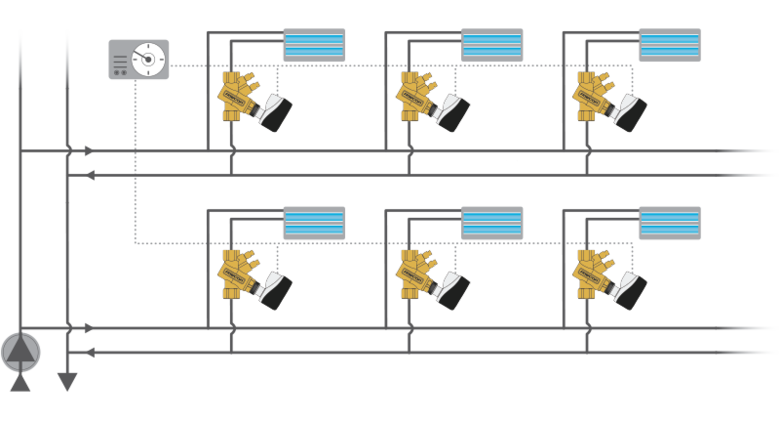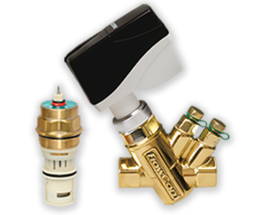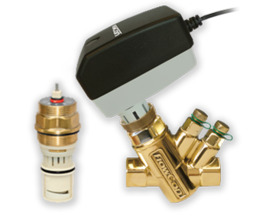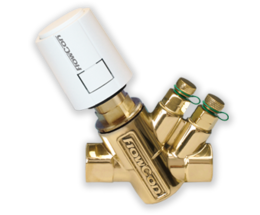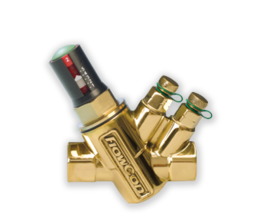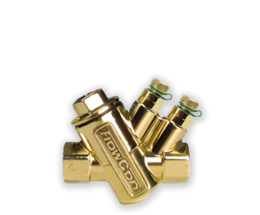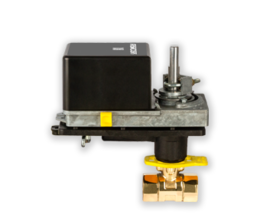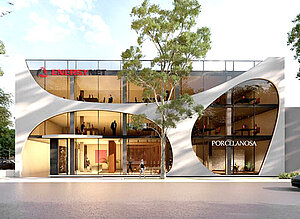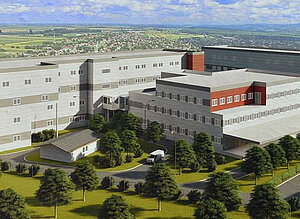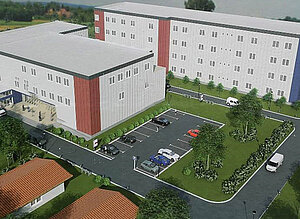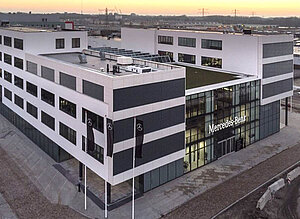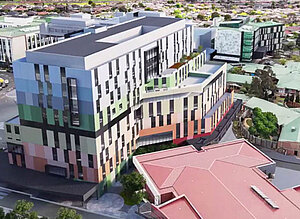Chilled Beams
What is Chilled Beam?
A chilled beam is a type of convection system designed to cool cubicles and the like. Often, they are integrated into the suspended ceiling system. Chilled water is piped to the beam and provides convective cooling. Pipes of water are passed through the beam and the circulated cold water will chill the air around the beam. The air becomes denser and falls to the floor. It is replaced by warmer air moving up from below, causing a constant passive air movement called convection, which cools the room.
The chilled beam is distinguishable from the chilled ceiling. They both uses water flowing through pipes, but in a chilled beam it is the thermal transfer from the pipes which cools the air. This makes chilled beams up to 85% more effective at convection than chilled ceilings.
Chilled beams are commonly seen in office facilities and common areas in office blocks, hospitals and other similar facilities and both pipe size and flow rates are normally in the lower end.
How is a Chilled Beam Application Optimized?
A chilled beam will - with proper balance on the water - reduce flow to design requirements and save energy. FlowCon recommends three different solutions to a chilled beam installation:
1. Chilled Beams with Pressure Independent Control (PICV)
The PICV will react to system pressure changes and regulate the flow of water to required flow by adjusting the actuator position. This helps the system to be accurately controlled even with pressure changes and reduced loads.
→ Download Application Drawing Example
FlowCon recommends the following PICVs:
2. Chilled Beams with Temperature Control (TCV)
The TCV will react to system pressure changes and automatically provide the selected max. flow independent of pressure changes. In addition, the actuator will provide ON/OFF control, securing proper thermal performance always, even at partial loads.
→ Download Application Drawing Example
FlowCon recommends the following TCV:
3. Chilled Beams with Automatic Balancing (ABV)
The automatic balancing valve will react to system pressure changes and limit the flow of hot or cold water to required max. flow helping the system to be accurately controlled even with pressure changes. This solution may be installed with the separate control valve.
→ Download Application Drawing Example
FlowCon recommends the following ABVs:
Some FlowCon Projects with Chilled Beams
See all projects
Energy Net, Novi Sad, Serbia
Energy Net’s new Headquater, Serbia. Balanced and controlled with FlowCon PICVs
Delta House, Belgrade, Serbia
Modern HQ constructed according to LEED and designed with the employees in mind
COVID-19 Hospital on Batajnički Drum in Belgrade, Serbia
Brand new COVID-19 hospital in the Serbian Capital – FlowCon is proud to contribute
Epidemic Hospital at Rasina Military Complex, Kruševac, Serbia
New COVID-19 hospital in Serbia – proud to contribute
Mercedes-Benz HQ in Nieuwegein, The Netherlands
Circular Building - going from old and empty to modern and sustainable
Sunshine Hospital, Melbourne, Australia
Start on life is cool with FlowCon… at new children’s section at Sunshine Hospital
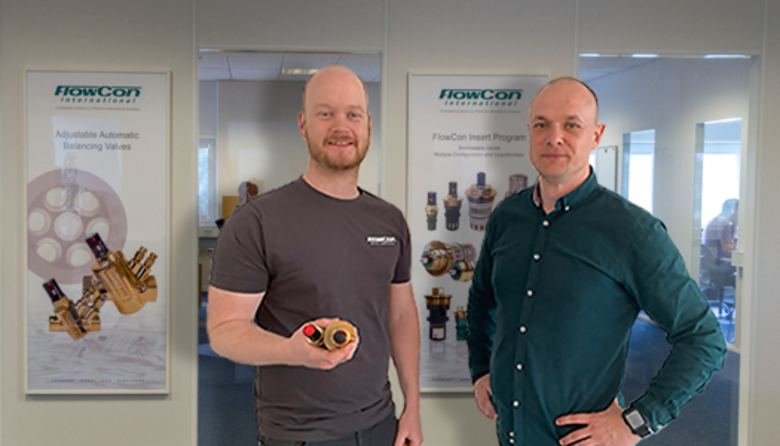
Still in Doubt?
Please Contact Us
If You are in doubt which Solution to choose to Your Application or how a specific product is working, please do not hesitate contacting FlowCon.
We will react as soon as possible, and written reply is normally within 8 hours if Your question is asked in English and during office hours. Other languages and requests asked during vacation time or weekends may experience longer response time. Likewise, for any special and out of standard requests, You may not see an immediate reply, but we are responsive.
